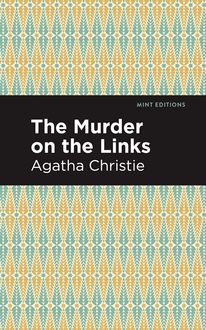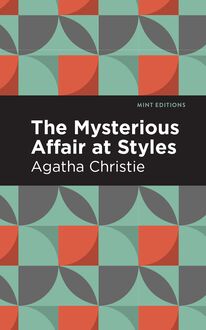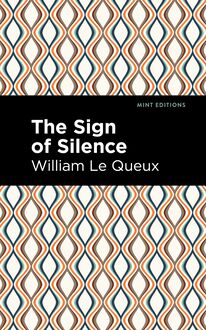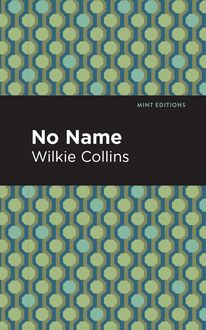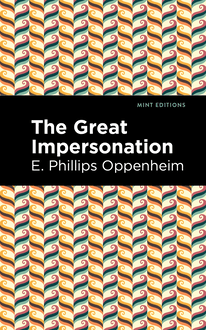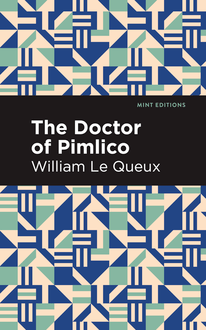-
 Univers
Univers
-
 Ebooks
Ebooks
-
 Livres audio
Livres audio
-
 Presse
Presse
-
 Podcasts
Podcasts
-
 BD
BD
-
 Documents
Documents
-
- Cours
- Révisions
- Ressources pédagogiques
- Sciences de l’éducation
- Manuels scolaires
- Langues
- Travaux de classe
- Annales de BEP
- Etudes supérieures
- Maternelle et primaire
- Fiches de lecture
- Orientation scolaire
- Méthodologie
- Corrigés de devoir
- Annales d’examens et concours
- Annales du bac
- Annales du brevet
- Rapports de stage
La lecture à portée de main
Vous pourrez modifier la taille du texte de cet ouvrage
Découvre YouScribe en t'inscrivant gratuitement
Je m'inscrisDécouvre YouScribe en t'inscrivant gratuitement
Je m'inscrisEn savoir plus
Vous pourrez modifier la taille du texte de cet ouvrage
En savoir plus

Description
One of New York City’s richest retirees is found dead in his library, making his family and closest friends the focus of the investigation. This is a classic case of whodunit that forces the reader to expect the unexpected. Horatio Leavenworth was a successful merchant fatally shot in his own home. His murder is brought to the attention of Inspector Ebenezer Gryce and Leavenworth’s attorney, Everett Raymond. Due to the victim’s wealth, many people stand to benefit from his premature death. Gryce and Raymond compile a list of suspects, including family members set to inherit the bulk of the estate. Together, the men look at the evidence to uncover the identity of the real killer. The Leavenworth Case is one of Anna Katharine Green’s most engaging novels. It’s a realistic detective story filled with complex clues and nuanced characters. It is a unique mystery where its questions are just as compelling the answers. With an eye-catching new cover, and professionally typeset manuscript, this edition of The Leavenworth Case is both modern and readable.
Sujets
Informations
| Publié par | Mint Editions |
| Date de parution | 10 mai 2021 |
| Nombre de lectures | 0 |
| EAN13 | 9781513285566 |
| Langue | English |
Informations légales : prix de location à la page 0,0500€. Cette information est donnée uniquement à titre indicatif conformément à la législation en vigueur.
Extrait
The Leavenworth Case
Anna Katharine Green
The Leavenworth Case was first published in 1878.
This edition published by Mint Editions 2021.
ISBN 9781513280547 | E-ISBN 9781513285566
Published by Mint Editions ®
minteditionbooks .com
Publishing Director: Jennifer Newens
Design & Production: Rachel Lopez Metzger
Project Manager: Micaela Clark
Typesetting: Westchester Publishing Services
C ONTENTS B OOK I. T HE P ROBLEM I. “A G REAT C ASE ” II. T HE C ORONER ’ S I NQUEST III. F ACTS AND D EDUCTIONS IV. A C LUE V. E XPERT T ESTIMONY VI. S IDE -L IGHTS VII. M ARY L EAVENWORTH VIII. C IRCUMSTANTIAL E VIDENCE IX. A D ISCOVERY X. M R . G RYCE R ECEIVES N EW I MPETUS XI. T HE S UMMONS XII. E LEANORE XIII. T HE P ROBLEM B OOK II. H ENRY C LAVERING XIV. M R . G RYCE AT H OME XV. W AYS O PENING XVI. T HE W ILL OF A M ILLIONAIRE XVII. T HE B EGINNING OF G REAT S URPRISES XVIII. O N THE S TAIRS XIX. I N M Y O FFICE XX. “T RUEMAN ! T RUEMAN ! T RUEMAN !” XXI. A P REJUDICE XXII. P ATCH -W ORK XXIII. T HE S TORY OF A C HARMING W OMAN XXIV. A R EPORT F OLLOWED BY S MOKE XXV. T IMOTHY C OOK XXVI. M R . G RYCE E XPLAINS H IMSELF B OOK III. H ANNAH XXVII. A MY B ELDEN XXVIII. A W EIRD E XPERIENCE XXIX. T HE M ISSING W ITNESS XXX. B URNED P APER XXXI. “T HEREBY H ANGS A T ALE ” XXXII. M RS . B ELDEN ’ S N ARRATIVE XXXIII. U NEXPECTED T ESTIMONY B OOK IV. T HE P ROBLEM S OLVED XXXIV. M R . G RYCE R ESUMES C ONTROL XXXV. F INE W ORK XXXVI. G ATHERED T HREADS XXXVII. C ULMINATION XXXVIII. A F ULL C ONFESSION XXXIX. T HE O UTCOME OF A G REAT C RIME
BOOK I
THE PROBLEM
I
“A G REAT C ASE ”
“A deed of dreadful note.”
—Macbeth
I had been a junior partner in the firm of Veeley, Carr & Raymond, attorneys and counsellors at law, for about a year, when one morning, in the temporary absence of both Mr. Veeley and Mr. Carr, there came into our office a young man whose whole appearance was so indicative of haste and agitation that I involuntarily rose at his approach and impetuously inquired:
“What is the matter? You have no bad news to tell, I hope.”
“I have come to see Mr. Veeley; is he in?”
“No,” I replied; “he was unexpectedly called away this morning to Washington; cannot be home before to-morrow; but if you will make your business known to me—”
“To you, sir?” he repeated, turning a very cold but steady eye on mine; then, seeming to be satisfied with his scrutiny, continued, “There is no reason why I shouldn’t; my business is no secret. I came to inform him that Mr. Leavenworth is dead.”
“Mr. Leavenworth!” I exclaimed, falling back a step. Mr. Leavenworth was an old client of our firm, to say nothing of his being the particular friend of Mr. Veeley.
“Yes, murdered; shot through the head by some unknown person while sitting at his library table.”
“Shot! murdered!” I could scarcely believe my ears.
“How? when?” I gasped.
“Last night. At least, so we suppose. He was not found till this morning. I am Mr. Leavenworth’s private secretary,” he explained, “and live in the family. It was a dreadful shock,” he went on, “especially to the ladies.”
“Dreadful!” I repeated. “Mr. Veeley will be overwhelmed by it.”
“They are all alone,” he continued in a low businesslike way I afterwards found to be inseparable from the man; “the Misses Leavenworth, I mean—Mr. Leavenworth’s nieces; and as an inquest is to be held there to-day it is deemed proper for them to have some one present capable of advising them. As Mr. Veeley was their uncle’s best friend, they naturally sent me for him; but he being absent I am at a loss what to do or where to go.”
“I am a stranger to the ladies,” was my hesitating reply, “but if I can be of any assistance to them, my respect for their uncle is such—”
The expression of the secretary’s eye stopped me. Without seeming to wander from my face, its pupil had suddenly dilated till it appeared to embrace my whole person with its scope.
“I don’t know,” he finally remarked, a slight frown, testifying to the fact that he was not altogether pleased with the turn affairs were taking. “Perhaps it would be best. The ladies must not be left alone—”
“Say no more; I will go.” And, sitting down, I despatched a hurried message to Mr. Veeley, after which, and the few other preparations necessary, I accompanied the secretary to the street.
“Now,” said I, “tell me all you know of this frightful affair.”
“All I know? A few words will do that. I left him last night sitting as usual at his library table, and found him this morning, seated in the same place, almost in the same position, but with a bullet-hole in his head as large as the end of my little finger.”
“Dead?”
“Stone-dead.”
“Horrible!” I exclaimed. Then, after a moment, “Could it have been a suicide?”
“No. The pistol with which the deed was committed is not to be found.”
“But if it was a murder, there must have been some motive. Mr. Leavenworth was too benevolent a man to have enemies, and if robbery was intended—”
“There was no robbery. There is nothing missing,” he again interrupted. “The whole affair is a mystery.”
“A mystery?”
“An utter mystery.”
Turning, I looked at my informant curiously. The inmate of a house in which a mysterious murder had occurred was rather an interesting object. But the good-featured and yet totally unimpressive countenance of the man beside me offered but little basis for even the wildest imagination to work upon, and, glancing almost immediately away, I asked:
“Are the ladies very much overcome?”
He took at least a half-dozen steps before replying.
“It would be unnatural if they were not.” And whether it was the expression of his face at the time, or the nature of the reply itself, I felt that in speaking of these ladies to this uninteresting, self-possessed secretary of the late Mr. Leavenworth, I was somehow treading upon dangerous ground. As I had heard they were very accomplished women, I was not altogether pleased at this discovery. It was, therefore, with a certain consciousness of relief I saw a Fifth Avenue stage approach.
“We will defer our conversation,” said I. “Here’s the stage.”
But, once seated within it, we soon discovered that all intercourse upon such a subject was impossible. Employing the time, therefore, in running over in my mind what I knew of Mr. Leavenworth, I found that my knowledge was limited to the bare fact of his being a retired merchant of great wealth and fine social position who, in default of possessing children of his own, had taken into his home two nieces, one of whom had already been declared his heiress. To be sure, I had heard Mr. Veeley speak of his eccentricities, giving as an instance this very fact of his making a will in favor of one niece to the utter exclusion of the other; but of his habits of life and connection with the world at large, I knew little or nothing.
There was a great crowd in front of the house when we arrived there, and I had barely time to observe that it was a corner dwelling of unusual depth when I was seized by the throng and carried quite to the foot of the broad stone steps. Extricating myself, though with some difficulty, owing to the importunities of a bootblack and butcher-boy, who seemed to think that by clinging to my arms they might succeed in smuggling themselves into the house, I mounted the steps and, finding the secretary, by some unaccountable good fortune, close to my side, hurriedly rang the bell. Immediately the door opened, and a face I recognized as that of one of our city detectives appeared in the gap.
“Mr. Gryce!” I exclaimed.
“The same,” he replied. “Come in, Mr. Raymond.” And drawing us quietly into the house, he shut the door with a grim smile on the disappointed crowd without. “I trust you are not surprised to see me here,” said he, holding out his hand, with a side glance at my companion.
“No,” I returned. Then, with a vague idea that I ought to introduce the young man at my side, continued: “This is Mr. ____ , Mr. ____ , —excuse me, but I do not know your name,” I said inquiringly to my companion. “The private secretary of the late Mr. Leavenworth,” I hastened to add.
“Oh,” he returned, “the secretary! The coroner has been asking for you, sir.”
“The coroner is here, then?”
“Yes; the jury have just gone up-stairs to view the body; would you like to follow them?”
“No, it is not necessary. I have merely come in the hope of being of some assistance to the young ladies. Mr. Veeley is away.”
“And you thought the opportunity too good to be lost,” he went on; “just so. Still, now that you are here, and as the case promises to be a marked one, I should think that, as a rising young lawyer, you would wish to make yourself acquainted with it in all its details. But follow your own judgment.”
I made an effort and overcame my repugnance. “I will go,” said I.
“Very well, then, follow me.”
But just as I set foot on the stairs I heard the jury descending, so, drawing back with Mr. Gryce into a recess between the reception room and the parlor, I had time to remark:
“The young man says it could not have been the work of a burglar.”
“Indeed!” fixing his eye on a door-knob near by.
“That nothing has been found missing—”
“And that the fastenings to the house were all found secure this morning; just so.”
“He did not tell me that. In that case”—and I shuddered—“the murderer must have been in the house all night.”
Mr. Gryce smiled darkly at the door-knob.
“It has a dreadful look!” I exclaimed.
Mr. Gryce immediately frowned at the door-knob.
And here let me say that Mr. Gryce, the detective, was not the thin, wiry individual with the piercing eye you are doubtless expecting to see. On the contrary, Mr. Gryce was a portly, comfortable personage with an eye that never pierced, that did not even rest on you. If it rested anywhere, it was always on some insignificant object in the vicinity, some vase, inkstand, book, or button. These things he would seem to take into his confidence, make the repositories of hi
-
 Univers
Univers
-
 Ebooks
Ebooks
-
 Livres audio
Livres audio
-
 Presse
Presse
-
 Podcasts
Podcasts
-
 BD
BD
-
 Documents
Documents
-
Jeunesse
-
Littérature
-
Ressources professionnelles
-
Santé et bien-être
-
Savoirs
-
Education
-
Loisirs et hobbies
-
Art, musique et cinéma
-
Actualité et débat de société
-
Jeunesse
-
Littérature
-
Ressources professionnelles
-
Santé et bien-être
-
Savoirs
-
Education
-
Loisirs et hobbies
-
Art, musique et cinéma
-
Actualité et débat de société
-
Actualités
-
Lifestyle
-
Presse jeunesse
-
Presse professionnelle
-
Pratique
-
Presse sportive
-
Presse internationale
-
Culture & Médias
-
Action et Aventures
-
Science-fiction et Fantasy
-
Société
-
Jeunesse
-
Littérature
-
Ressources professionnelles
-
Santé et bien-être
-
Savoirs
-
Education
-
Loisirs et hobbies
-
Art, musique et cinéma
-
Actualité et débat de société
- Cours
- Révisions
- Ressources pédagogiques
- Sciences de l’éducation
- Manuels scolaires
- Langues
- Travaux de classe
- Annales de BEP
- Etudes supérieures
- Maternelle et primaire
- Fiches de lecture
- Orientation scolaire
- Méthodologie
- Corrigés de devoir
- Annales d’examens et concours
- Annales du bac
- Annales du brevet
- Rapports de stage

